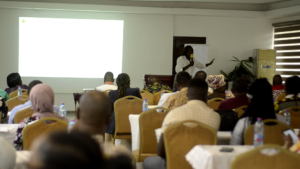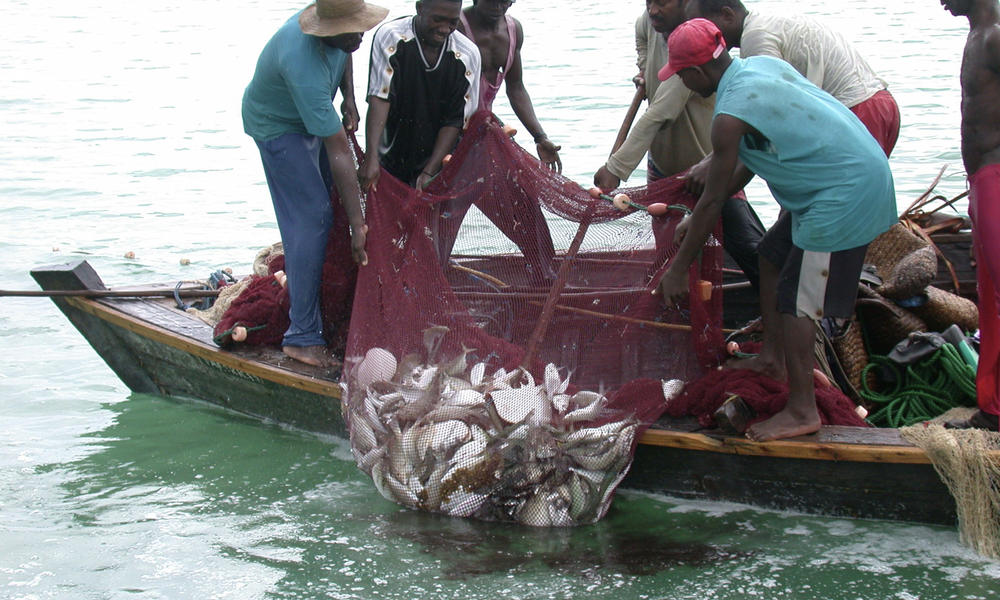The National Inland Canoe Fishermen Council is prevailing on the government to consider the establishment of a dedicated Development and Research Fund to the inland fisheries sector under the new Fisheries Act.
President of the Association, Jacob Kabori Ageke, says despite the institutionalization of an Inland Fisheries Management Policy, a development fund strategically apportioned to the inland fisherfolk can help address social issues like child labour plaguing the sector while ensuring sustainability.
“Since the 1950s, the whole act is only capturing the inland habour on just harvesting fishes and management, but sustainability wasn’t added to it. In the current act, the inland management plan is there but the establishment of the development fund for research is missing. This can help address child labour issues that’s affecting the sector,” he said.

Proliferation of unregistered businesses in the aquaculture sector and unregulated inland fishing have been identified as a bane to Ghana’s fisheries industry.
This is largely due to the lack of legislation and policies to contain activities of the sector under the current Fisheries Act (2002) with threats to public consumption.
The Fisheries Development and Aquaculture Ministry has been engaging stakeholders in the sectors in Kumasi on reviewing the Fisheries Act for a sustainable fishing management.
Ghana’s aquaculture sector is fast becoming the mainstay of the fisheries as environmental impacts, including climate change, is depleting marine fish stock.
Since its enactment in 2002, the Fisheries Act (Act 625) has only seen two amendments in 2014 and 2015 to address the changing trends in the sector.
The last review saw the inclusion of new regulations regarding measures to deter and eliminate illegal, unreported, and unregulated (IUU) fishing.
But regulations of the aquaculture and inland fishing industries are not entirely enshrined in the Act.

Director of Policy and Evaluation at the Fisheries and Aquaculture Ministry, Eric Baah explains the new act would help in managing the sector.
“There are no regulations, and it is not helping the sector. The inland sector also has free range, and it is not helping. The use of unhealthy items for fishing are concerns that can’t be overlooked. So, the new act would check some of these things,” he said.
The new Act seeks to rebuild fish stocks to enhance the socio-economic conditions of fishing communities, create employment within national and international frameworks and standards.

It would also improve food security, while contributing to gross domestic product and foreign exchange earnings.
Consultant to the Ministry, Doris Yeboah explains the new act would ensure increased enforcement and monitoring of the sector.
“This would allow enforcement of the regulations in managing the sector. Anyone who flouts the laws will be made to face the sanctions,” she said.
The fisherfolk are upbeat the bill, when passed, would facilitate regulation of the sector as they called for more investments.



